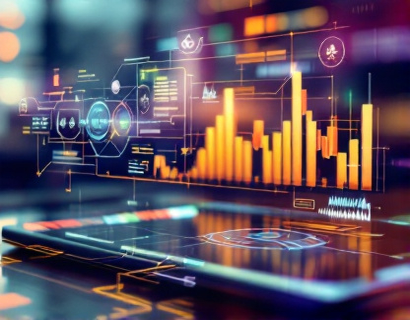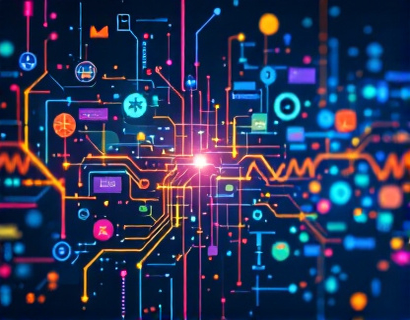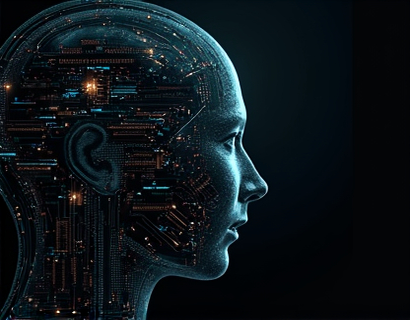Crypto and AI: Transforming User Experiences with Innovative Tech Solutions
The intersection of cryptocurrency and artificial intelligence (AI) is ushering in a new era of digital innovation, fundamentally transforming user experiences and enhancing connectivity across various platforms. This article delves into the latest advancements where these two cutting-edge technologies converge, offering valuable insights for tech enthusiasts and professionals alike. By exploring the synergy between crypto and AI, we can better understand how these innovations are redefining the digital landscape and driving growth in the tech sector.
Understanding the Basics: Cryptocurrency and Artificial Intelligence
Cryptocurrency, since its inception with Bitcoin in 2009, has revolutionized the way we think about money and transactions. It operates on blockchain technology, a decentralized ledger that ensures transparency, security, and immutability. On the other hand, AI refers to the simulation of human intelligence processes by machines, particularly computer systems. These processes include learning (the acquisition of information and rules for using it), reasoning (using rules to reach approximate or definite conclusions), and self-correction. When combined, these technologies create powerful tools that can optimize and personalize user experiences.
Enhanced Security through AI-Driven Crypto Solutions
One of the most significant benefits of merging crypto and AI is the enhancement of security measures. AI algorithms can detect and prevent fraudulent activities with greater accuracy and speed than traditional methods. For instance, machine learning models can analyze patterns in transaction data to identify anomalies that may indicate fraud or cyber attacks. This proactive approach not only protects users' assets but also builds trust in cryptocurrency platforms. Moreover, AI can improve the user authentication process through biometric verification and behavioral analysis, ensuring that only authorized users access sensitive information.
Personalized User Experiences with AI
AI's ability to process vast amounts of data makes it an ideal tool for creating personalized user experiences. In the context of cryptocurrency, AI can analyze user behavior, preferences, and market trends to provide tailored recommendations. For example, a crypto trading platform can use AI to suggest optimal trading strategies based on a user's historical trades and current market conditions. This level of personalization not only enhances user satisfaction but also increases the likelihood of successful trades and higher returns.
Smart Contracts and AI: A Powerful Combination
Smart contracts, self-executing contracts with the terms directly written into code, are a cornerstone of blockchain technology. When combined with AI, smart contracts can become even more dynamic and efficient. AI can help in the automation of complex contractual processes by analyzing conditions and executing actions based on real-time data. For instance, in supply chain management, AI-driven smart contracts can automatically trigger payments when specific conditions, such as delivery confirmation, are met. This reduces the need for intermediaries, speeds up transactions, and minimizes errors.
Predictive Analytics in Crypto Markets
Predictive analytics, powered by AI, is transforming the way traders and investors approach cryptocurrency markets. By analyzing historical data, market trends, and even social media sentiment, AI models can forecast price movements with a higher degree of accuracy. This allows users to make more informed decisions, reducing the risk of losses and increasing potential gains. Additionally, AI can help in identifying emerging trends and opportunities, giving users a competitive edge in the fast-paced crypto market.
Enhancing Decentralized Finance (DeFi) with AI
Decentralized Finance (DeFi) has gained significant traction, offering a range of financial services without traditional intermediaries. AI plays a crucial role in enhancing the functionality and accessibility of DeFi platforms. For example, AI can optimize lending and borrowing processes by assessing creditworthiness in real-time, adjusting interest rates dynamically, and managing risk more effectively. Furthermore, AI-driven portfolio management tools can help users diversify their investments and maximize returns by continuously monitoring and adjusting their asset allocations based on market conditions.
User Interface and Experience Innovations
The integration of AI in the user interface (UI) of crypto platforms is revolutionizing how users interact with digital assets. AI-powered chatbots and virtual assistants can provide 24/7 customer support, answering queries and guiding users through complex processes. These AI-driven interfaces can also adapt to user preferences, learning from interactions to offer a more intuitive and user-friendly experience. For instance, a crypto wallet app can use AI to simplify the process of managing multiple assets, displaying relevant information and actions based on the user's habits and needs.
Cross-Chain Interoperability and AI
As the crypto ecosystem grows, the need for cross-chain interoperability becomes increasingly important. AI can facilitate seamless interactions between different blockchain networks, enabling the transfer of assets and data across platforms. This not only enhances the functionality of individual platforms but also creates a more interconnected and efficient ecosystem. AI algorithms can optimize routing and transaction fees, ensuring that users benefit from the best possible outcomes when interacting with multiple chains.
Challenges and Considerations
While the integration of AI and crypto offers numerous benefits, it also presents challenges that must be addressed. One major concern is the regulatory landscape, as both crypto and AI are still evolving fields with varying levels of regulation across different jurisdictions. Ensuring compliance while leveraging the full potential of these technologies requires a deep understanding of legal frameworks and proactive engagement with regulatory bodies. Additionally, the complexity of AI models can make them opaque, raising concerns about transparency and trust. Developers must prioritize explainable AI to build user confidence and ensure ethical use of data.
Future Prospects: The Next Frontier
The future of crypto and AI is promising, with several emerging trends poised to further transform the digital landscape. One such trend is the development of AI-driven decentralized autonomous organizations (DAOs), which combine the autonomy of blockchain with the decision-making capabilities of AI. These DAOs can operate with minimal human intervention, making them ideal for managing complex projects and communities. Another area of interest is the integration of AI with quantum computing, which could exponentially enhance the processing power and efficiency of both technologies. As these innovations advance, we can expect even more sophisticated and user-centric applications in the crypto and AI space.
In conclusion, the merging of cryptocurrency and artificial intelligence is driving significant advancements in user experiences and digital engagement. From enhanced security and personalized interactions to predictive analytics and cross-chain interoperability, the synergy between these technologies is redefining the tech sector. As we continue to explore and harness the potential of crypto and AI, the possibilities for innovation and growth are vast, offering exciting opportunities for tech enthusiasts and professionals alike.










































